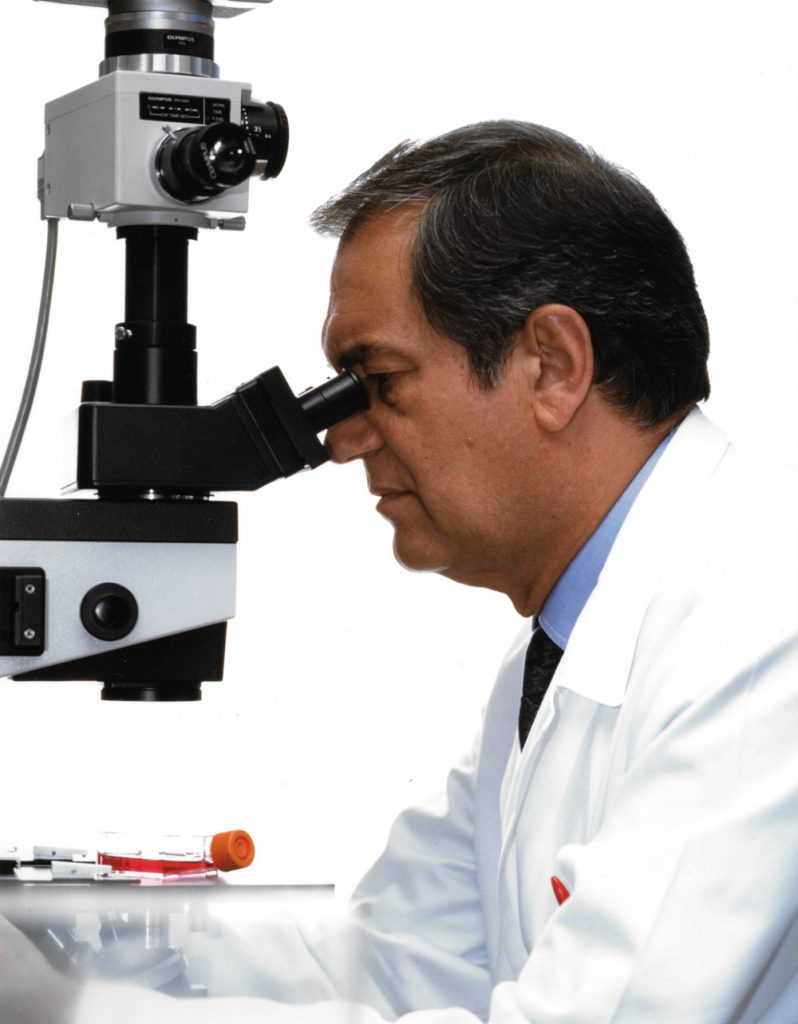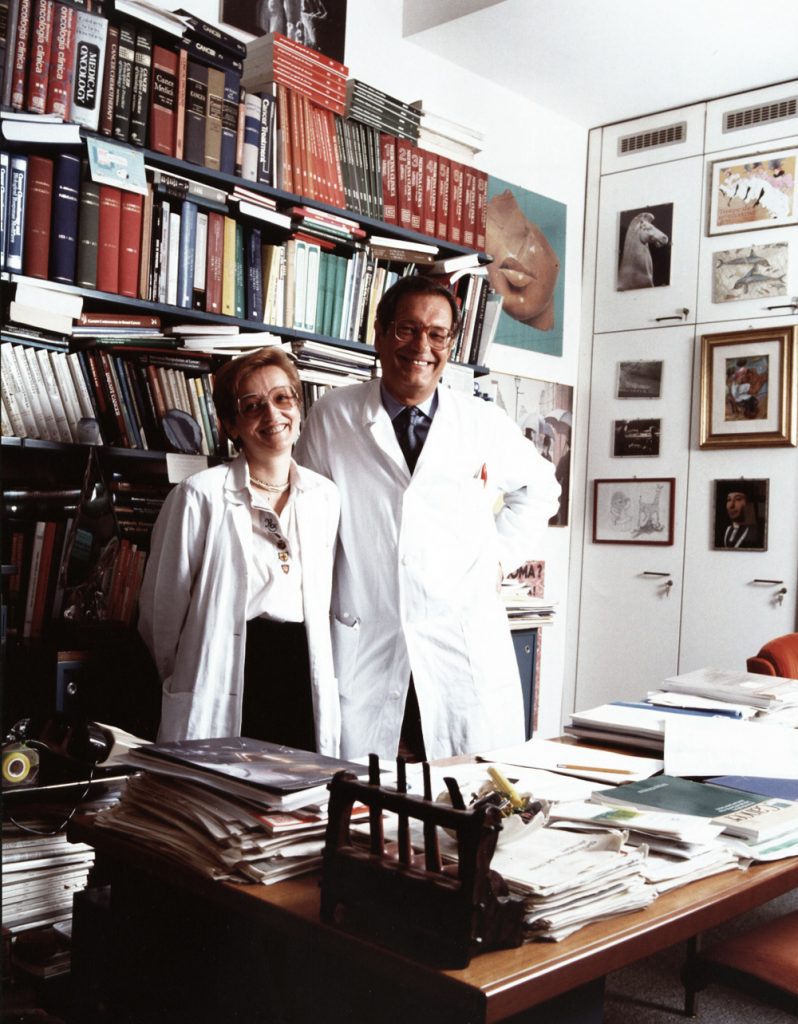Gianni Bonadonna was a pioneering oncologist. After graduating at the University of Milan in 1959, he started his career as an oncologist at the Memorial Sloan Kettering Cancer Center in New York, where he was mentored by David Karnofsky, for whom he developed a profound and everlasting admiration.
He came back to Italy in the mid-1960s and went to the Istituto Nazionale dei Tumori of Milan, where he became Director of the Medical Oncology Department. At that time, oncology was not considered a stand-alone medical discipline, but only a part of internal medicine. Patients were referred to medical oncologists only when cancer was beyond the limits of surgery and radiation therapy. The relentless work and activity of Gianni Bonadonna to make cancer a curable disease revolutionised this situation.
To achieve his goal he put together the best tools for studying emerging new drugs and pointed out the importance of coordinating the activity and efforts of medical oncology with those of surgery and radiation therapy in a combined approach.
In the early-1970s, Bonadonna conducted leading research in the field of breast cancer. His studies of adjuvant therapy showed that administration of drugs directed against cancer in the absence of clinically evident disease after surgery led to a reduction in the risk of recurrence and death of women with breast cancer.
This brought about a worldwide revolution in the therapeutic approach to women with operable breast cancer that has and still is increasing the chances of cure for thousands of women every year.

Almost obsessed with quality of data, Gianni Bonadonna organised a coordinating centre for the collection and analysis of clinical trial data: it was necessary to create a “special office” for the coordination of research protocols.
Operations Office is an American term, which comes from the Anglo-Saxon military terminology and refers to the center where plans for war operations are traced and coordinated. This term was deemed perfectly suitable for the war against cancer.
In the United States the Clinical Operations Offices had a team made by a coordinator, statisticians, data managers, secretaries. In Milan, as in the rest of Italy, there was not such a type of office. Thanks to Gianni Bonadonna’s effort, in 1972 the first Italian Operational Office was officially established at the Istituto Tumori di Milano.
Then, the real challenge began. At that time, in Italy the technical and methodological tools such as IT, statistical and management supports – that today represent the indispensable endowment of every Clinical Operations Office – were futuristic.
No one could foresee that the results of the clinical studies designed and conducted by Bonadonna’s Team would not only be published in the most prestigious international journals, but would even contribute to improve the prognosis in various malignant tumors and to modify, over time, the therapeutic strategies in use.
The results of these studies have continued to receive confirmation over time, in all the trials that were subsequently conducted by other clinical researchers.
Finally, in 1999 Gianni Bonadonna founded a non-profit organisation specifically aimed at promoting cancer research, for reliable and accurate data: Fondazione Michelangelo, of which he became President until 2015, and its internal Clinical Research Organization, Michelangelo Tech.
